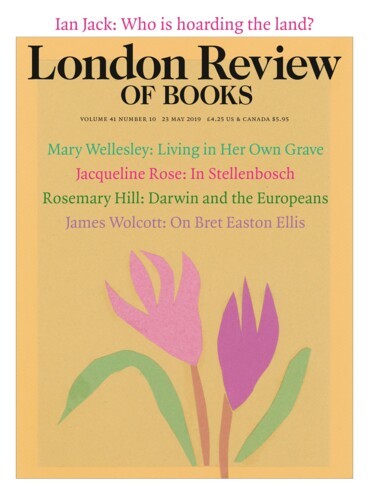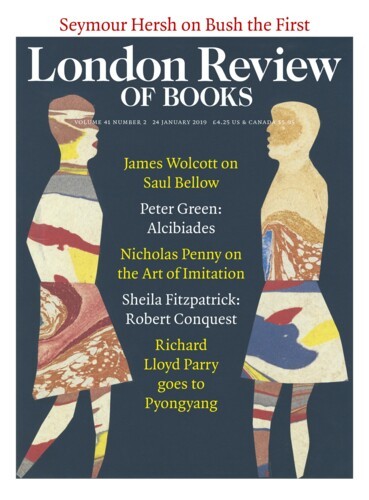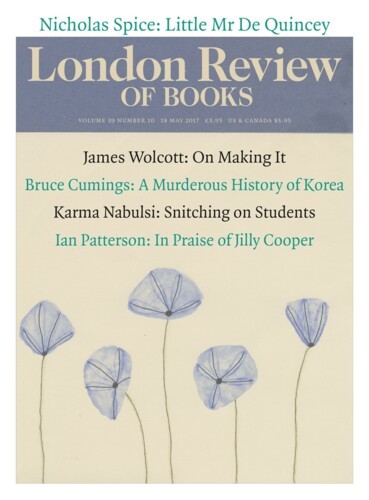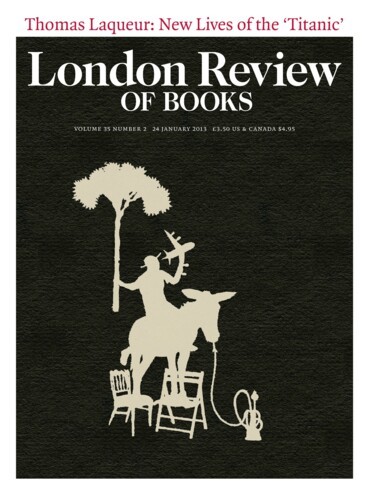Mr Trendy Sicko
James Wolcott, 23 May 2019
Will Bret Easton Ellis learn anything from this debacle? Of course not. It would be out of character and borderline disappointing if he did. A sudden onset of empathy would neutralise the snot factor so integral to his persona and voice. Upsetting the maximum number of people with the minimal amount of effort is a gift and a curse, akin to Jonathan Franzen’s earnest genius for getting on everyone’s nerves. The ability to bring out the energised best and worst from reviewers and fellow writers with even so middling, muddling a book as White – to provoke them into haughty erasure – testifies to an arch-nemesis quality that might be put to better purposes than the paltry sport of weenie-roasting millennials.





